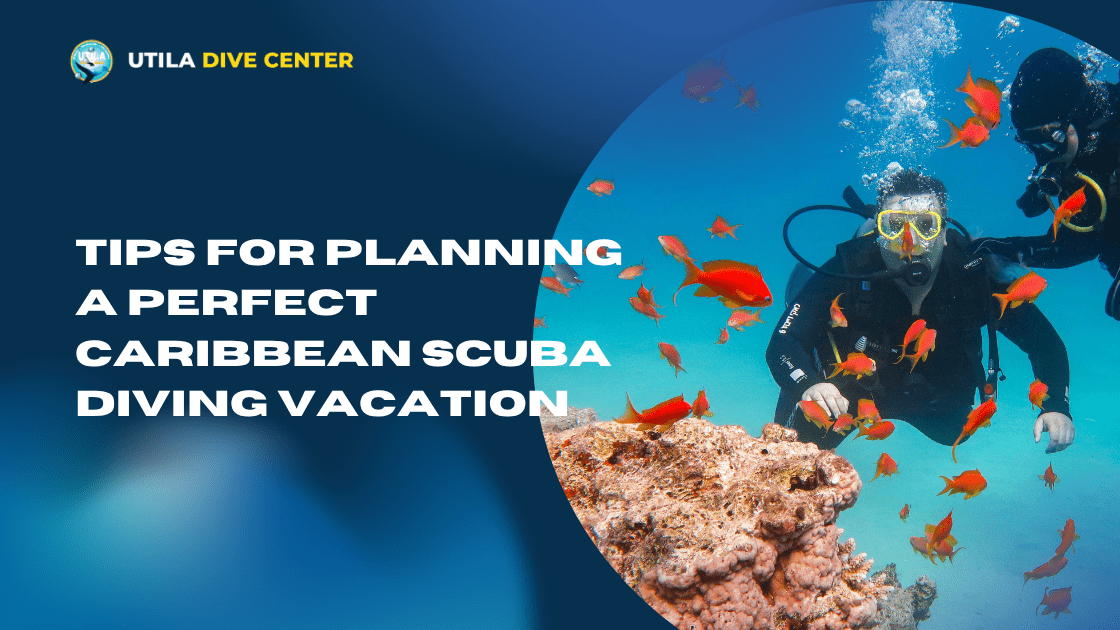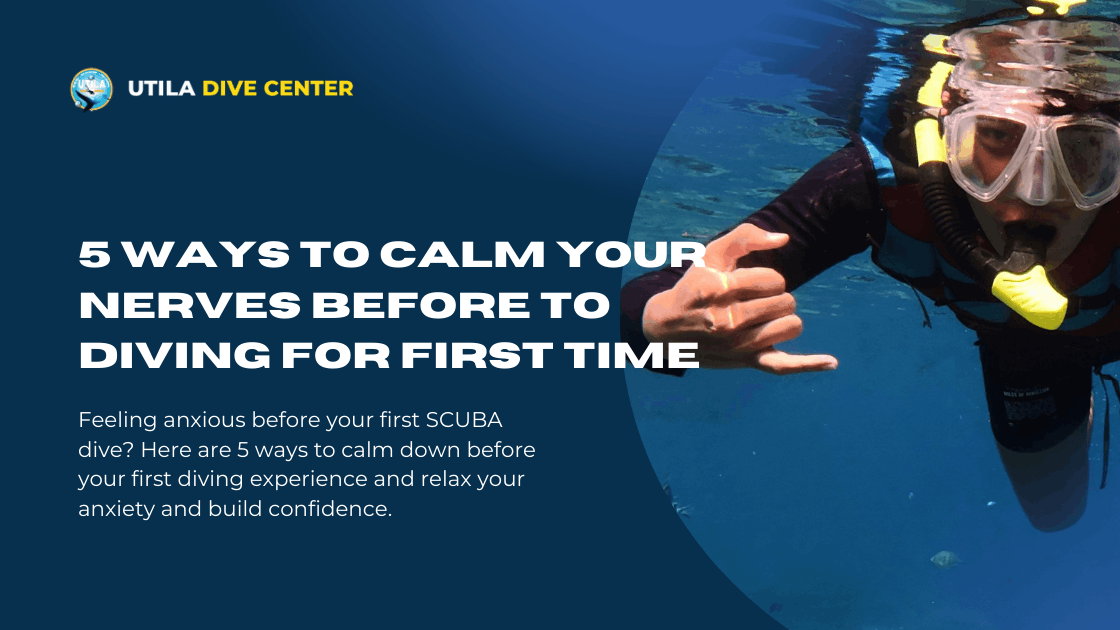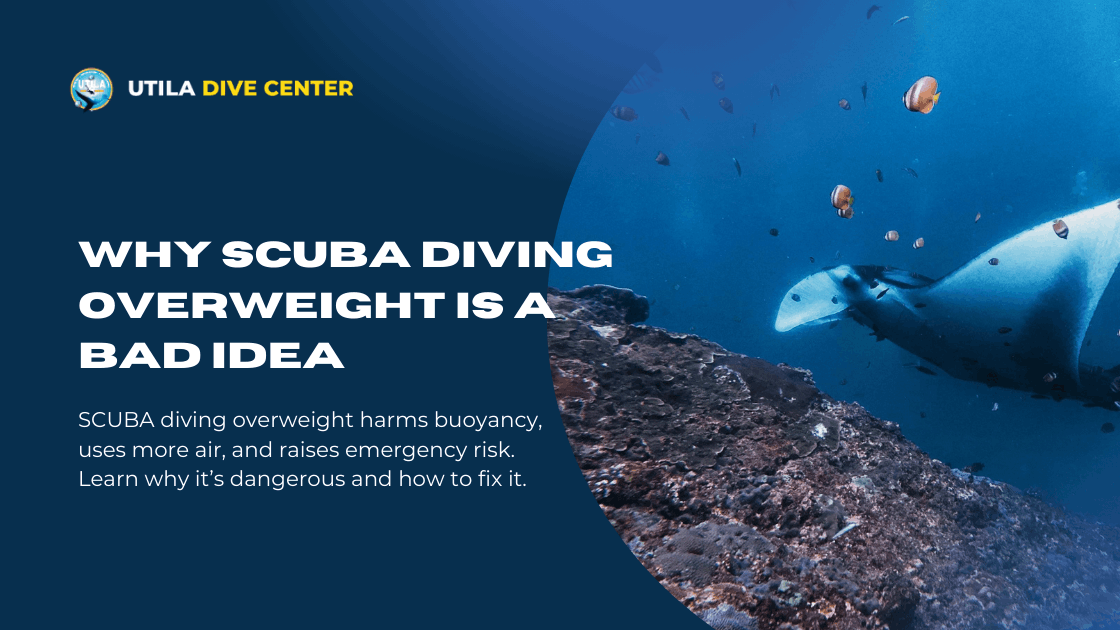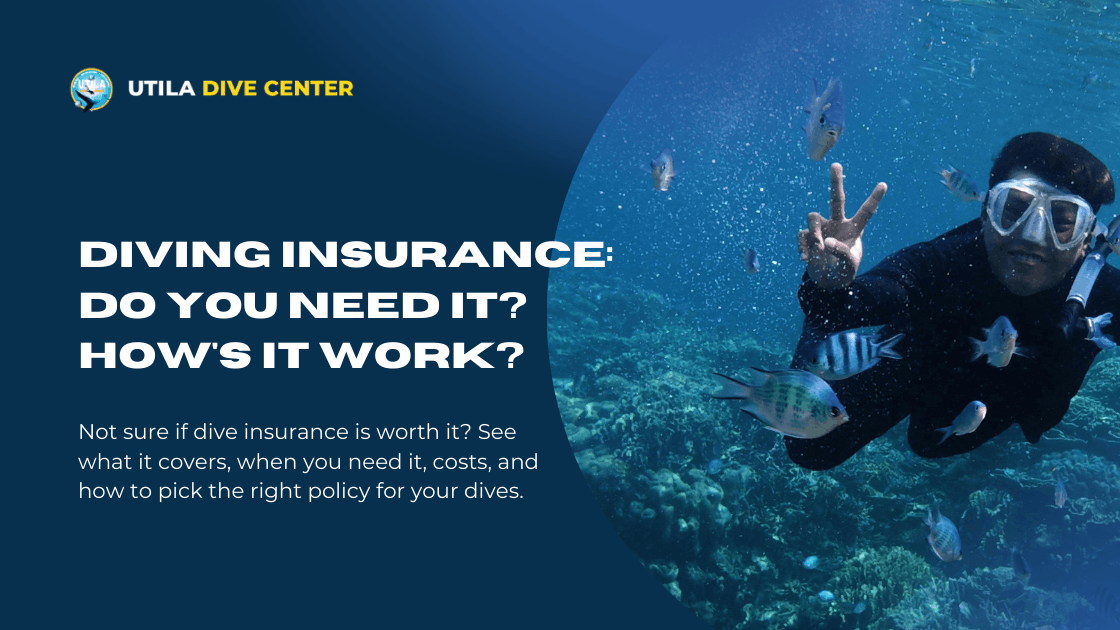
Tips for Planning a Perfect Caribbean SCUBA Diving Vacation
Tips for Planning a Perfect Caribbean SCUBA Diving Vacation
By: Manny Lagos | Date: 2025-07-25T11:12:37.074Z
If you’re dreaming of warm tropical waters, stunning coral reefs, breathtaking views, and the peaceful sound of your own bubbles as you dive into the deep blue sea… a Caribbean SCUBA diving vacation is just what you need.
The Caribbean has something for everyone, from total beginners and adventure-loving groups to professional divers planning their next diving escapade. It’s home to some of the most beautiful dive sites in the world. But as with any other trip, a little planning goes a long way.
At Utila Dive Center, we’ve helped thousands of divers make unforgettable memories, and we know exactly what makes SCUBA diving in the Caribbean smooth, safe, and fun.
Ready to plan your best vacation yet?
Here are 10 tips to help you plan an ultimate Caribbean dive vacation:
-
Choose the Location
The Caribbean is huge, and not every island offers the same kind of diving experience. Some destinations are known for macro critters, others for shipwrecks, walls, whale sharks, or night dives. So the first step? Figure out what kind of diving you want to do.
Utila, Honduras– one of the best diving spots in the Caribbean, offers world-class diving at a fraction of the cost of other Caribbean destinations. With crystal-clear waters, sea turtles, and a friendly local community, it’s a top pick for both new and experienced divers. It’s also home to Utila Dive Center– the Caribbean’s premier PADI Career Development Center and features some of the best Caribbean dive resorts around.
So, make a list of everything you want to see (wrecks, coral reefs, marine life) on your Caribbean dive vacation and choose a destination that matches your dream.
-
When & Which Month to Travel
The Caribbean has great diving conditions year-round, but some months offer better experiences than others.
- Dry season (December-May): Usually means calmer seas and better visibility.
- Wet season (September-November): May bring rain or an occasional storm, but it also means fewer people and better deals for Caribbean dive vacations.
- If you want a chance to spot whale sharks in Utila, plan your trip between the end of February to March-April or around October, November, and December.
Before you book, it’s a good idea to check water temperatures and visibility conditions. On Utila, water temperatures stay between 26°C-29°C (79°F-84°F) almost all year, making it perfect for SCUBA diving in the Caribbean.
-
Ensure You're Fit to Dive
SCUBA diving in the Caribbean is a physically demanding activity, so make sure you’re in good health before your trip. You don’t need to be an athlete, but you should feel confident entering the water and be free from medical conditions that might interfere with pressure changes.
If you’re planning to get certified during your Caribbean dive vacation, make sure to fill out the PADI medical questionnaire beforehand. If anything is flagged, a quick visit to the doctor will help clear you for training.
Pro tip: Start walking, swimming, or doing light cardio a few weeks before your trip, it'll help you boost your air consumption and energy underwater.
-
Check and Prepare Your Gear
Bringing your own gear? Give it a thorough check before packing. Look for leaky O-rings, worn-out straps, or mold in your mask (yes, it happens). Make sure your wetsuit still fits comfortably and your regulator and BCD are functioning properly. A faulty piece of diving equipment can quickly turn an amazing dive day into a frustrating one.
And if you’re planning to rent, no problem. Utila Dive Center provides high-quality, well-maintained gear for all our divers. Still, if you have favourites (like your mask and fins), feel free to bring them along.
P.S. Don’t forget your certification cards, dive computer, logbook, and a save-a-dive kit with spare parts.
-
Secure Dive Insurance
This one’s a no-brainer. Dive insurance is your safety net in case of an emergency. It covers things like decompression chamber costs, dive-related injuries, and sometimes even gear damage.
While diving is very safe when done right, it’s always better to be prepared. Look into plans from DAN (Divers Alert Network) or DiveAssure, and make sure your policy covers diving activities at your certification level.
-
Plan Your Dives in Advance
We know it’s tempting to go with the flow on vacations, but for a SCUBA dive trip in the Caribbean, it’s always smart to plan ahead. Book your dives or courses ahead of time, especially if you’re travelling during peak season.
Many diving centers like Utila Dive Center run diving programs all year round, but the best spots fill up fast. So, if you want to become a PADI Open Water Diver, Divemaster, or Instructor– book early. It will help you get the course dates you want and give you enough time to prepare before you arrive.
Need help finding the best SCUBA diving resorts? Contact us now.
-
Stay Hydrated and Rested
When it comes to diving, it’s easy to get caught up in the excitement and overlook basic care. But diving dehydrates your body faster than you might expect and can increase your risk of decompression sickness. So drink lots of water: before, during, and after your dive.
Also, give yourself time to relax. Don’t dive tired or hungover (it’s no fun and not safe). Instead, nap in a hammock, soak up the sun, and enjoy some fresh coconut water. Remember– you’re on island time now.
-
Respect Marine Life and the Environment
When you dive, you don’t just enter the underwater world, you enter a fragile ecosystem. So, practice good buoyancy to avoid damaging coral reefs, don’t touch marine life, and most importantly– never take anything out of the ocean (except photos).
If you want to give back and protect the ocean, consider joining a conservation program like UDC’s GoECO. It’s basically a hands-on initiative that teaches divers of all levels how to protect and restore coral reefs.
-
Embrace the Local Culture
A Caribbean dive vacation is about so much more than diving, it’s about living up that island life. Take time to explore the local food, music, hidden gems, and community that make each destination special.
On Utila, grab a nice cocktail and a baleada from a roadside stand, go dancing at a beach bar, or watch the sunset from the dock with locals. It’s often the people and the culture (not just the dive sites) that make your SCUBA dive trip in the Caribbean truly memorable.
-
Allow Time Between Your Last Dive and Flying
This one’s a non-negotiable: always wait at least 18-24 hours after your last dive before flying. It gives your body enough time to safely off-gas nitrogen and also helps you avoid decompression sickness.
Use this downtime to chill, explore, or even book a massage. Think of it as the perfect excuse to enjoy your last day in the Caribbean.
Bonus For Divers: Checklist
Lastly, here’s a quick dive trip packing list to make sure you’re fully prepared:
- Scuba Certification Card
- Scuba Gear
- Scuba Gear Bag
- Mask and Snorkel
- Defog
- Fins and Booties
- Buoyancy Compensator
- Wet Suit
- Gloves
- Dive Knife
- Regulator with Octo
- Watch/Bottom Timer
- Dive Computer
- Compass
- Save a Dive Kit
- Dive Lights
- Extra Batteries
- Tank Marker Light
- Log Book
- Extra Mask Strap
- Extra Fin Straps
- Underwater Slate
- Magnifying Glass
- Surface Signal Kit/Mirror
- Whistle
- Cold Water Drysuit
- Drysuit
- Drysuit Hood
- Gloves
- Boots
- Weight
- Tank
- Dive Tank or DIN adapter
- Photography Equipment
- Camera
- Housing
- Spare O-rings
- Lens
- Camera Manual
- Memory Cards
- Batteries
- Strobe
- Tools
- Card reader, USB
- Cable
- Laptop Charger
- Power Strips
- Hard drive backup
- Clothing
- T-shirts
- Shorts
- Swimsuit
- Dress/Skirt
- Pants
- Sweater
- Shoes/Sandals
- Socks
- Sun Shirt
- Underwear
- Vest
- Rain Jacket
- Hat/Visor
- Belt
- Health and Hygiene
- Allergy Pills/Antihistamines
- Aspirin/Pain Relievers
- Motion Sickness Pills
- Prescription Medications
- Antacid/Laxatives
- Toothbrush
- Dental Floss
- Toothpaste
- Feminine Hygiene
- Shampoo/Conditioner
- Hair Care Products
- Lip Balm
- Shampoo and Conditioner
- Deodorant
- Hair Dryer
- Nail Clipper
- First Aid Kit
- Bug Spray
- Sunscreen
- Insect Repellent
- Razor
- Shaving Cream
- Important Documents
- Cash
- Miscellaneous
- Backpack
- Binoculars
- Flashlight
- Maps
- Camera(s)
- Books/Magazines
- Portable Music Player
- Sewing Kit
- Swiss Army Knife
- Wall Socket Adapter
- Water Bottle
- Snacks
- Rubber Bands
- Extra Glasses / Contact Lenses
- ATM Card and/or Travelers Checks
- Proof of Dive Accident Insurance
- Proof of Trip Insurance
- Drivers License
- Passport
- Diving Cards
- Credit Cards
- Travel Vouchers
- Airline Tickets
- Travel Itinerary
- Spare Passport Photos
- Beach Towel
- Sunglasses
- Umbrella
- Travel Alarm
- Empty Soft Bag for Souvenirs
Conclusion:
Planning a SCUBA diving vacation in the Caribbean is one of the most exciting adventures you can take, and with a bit of preparation, it can be absolutely unforgettable.
From picking the right destination and travel month to securing your dive insurance and staying safe, these 10 tips will help you get the most out of your SCUBA diving in the Caribbean, no matter your skill level.
Ready to jump in and explore the beautiful Caribbean waters with Utila Dive Center?
References:
[1] – Blog.padi.com - Scuba diving vacation planning tips
[2] – Divepointmexico.com - 12 tips for planning a scuba diving trip
[3] – Blog.padi.com - The ultimate scuba trip packing list
[4] – Utiladivecenter.com - Official site of Utila Dive Centre, a premier PADI Career Development Center
[5] – Utilaguide.com - Whale shark encounters and activities in Utila

5 Ways to Calm Your Nerves Before to Diving for First Time
Feeling anxious before your first SCUBA dive? Here are 5 ways to calm down before your first diving experience and relax your anxiety and build confidence.
Read more
Why SCUBA Diving Overweight Is a Bad Idea
SCUBA diving overweight harms buoyancy, uses more air, and raises emergency risk. Learn why it’s dangerous and how to fix it.
Read more
Diving Insurance: Do You Need It? How's It Work?
Not sure if dive insurance is worth it? See what it covers, when you need it, costs, and how to pick the right policy for your dives.
Read more
SCUBA Diving for Seniors - Is It Too Late?
Wondering if it's too late to start SCUBA diving? Learn how seniors can embark on underwater adventures with proper guidance and safety measures.
Read more